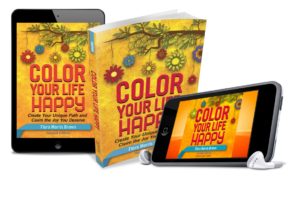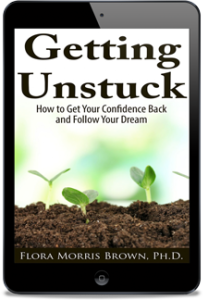Everywhere you look there seems to be upset, conflict and events that threaten your peace of mind and happiness.
How can you remain upbeat and content under such circumstances?
Research, such as that done by David T. Lykken, noted geneticist, famous for the Minnesota Twin Study and author of Happiness: The Nature and Nurture of Joy and Contentment, discovered that about half of your sense of satisfaction with your life stems from your genetic makeup.
Your mother was right
Yep. Your mother was right, at least in part, when she said you’re just like your father.
But what of the remaining half?
According to Lykken, eight percent can be attributed to circumstances in your life such as your upbringing, education, marital status and income.
The remaining forty percent is a reflection of your attitude and the choices you make.
There is good news
In other words, you have control over a huge chunk of your happiness.
“Happiness is not, except in very rare cases, something that drops into the mouth, like a ripe fruit. … Happiness must be, for most men and women, an achievement rather than a gift of the gods, and in this achievement, effort, both inward and outward, must play a great part.” Bertrand Russell
The happiness that emerges from the research is not that giddiness that comes over you while skipping through the meadow. It’s the well-being and sense of satisfaction you create as a by-product of your choice of thoughts and outward actions.
Happy people have their share of troubles, problems and heartbreak. What sets them apart and enables them to enjoy happiness are the choices they make.
Dance teacher, Adrianne Haslet-Davis, 32, suffered the unimaginable loss of her left leg in the April 15, 2013 Boston Marathon bombing. But three weeks later, on May 1, 2013 she appeared on the TV show, Dancing with the Stars, did ballet stretches and vowed to dance again, according to this Sun article. Although the host and several of the contestants were in tears, it was clear that Adrianne has made a positive choice in the face of a personal tragedy.
Viktor Frankl, Austrian neurologist and psychiatrist, is best known as a Holocaust survivor who showed us by example that even though we cannot control all circumstances, we can choose our attitude toward what happens to us. His book, The Search for Meaning, chronicles his experiences as an inmate in a concentration camp. He discovered that the inmates with the best chance of surviving those horrible situations were the ones who found a reason to live.
In this 22 minute interview, Frankl explains how having a meaning to live brings about happiness.
From a large body of research conducted by psychologists such as Martin Seligman, Jon Haidt, Edward Diener, Mihaly Csikszentmihalyi and Sonja Lyumborisky, people who describe themselves as happy
- Engage in meaningful work
- Believe in a higher power
- Trust their ability to overcome adversity
- Express gratitude
- Build on their strengths
- Discover their weaknesses and get help for them
- Surround themselves with nurturing relationships
- Restrict the amount of television and news they watch
- Eat healthy diets
- Get physical exercise
- Feed their minds with uplifting and enriching thoughts
- Avoid brooding over their mistakes and failures
- Focus on the present and what they can do here and now
Happy people use tools and strategies
Most of all, happy people identify tools and strategies to restore balance, harmony and positive feelings.
To encourage you to awaken the power within you to create a life of mindfulness, meaning, gratitude and joy, I created Everyday Happiness, a set of inspirational cards designed as gentle reminders to take and keep control of your happiness.
Add these cards to your happiness arsenal and consult them daily for inspiration. Each card presents a cartoon on one side and words of advice or inspiration on the reverse side. Read through all the cards, noting which ones resonate with you. Or pick a card at random, letting that message speak to you.
The cartoons and messages are based on my book, Color Your Life Happy: Create the Success, Abundance and Inner Joy You Deserve, available in paperback and Kindle versions.
Once you get your own deck of cards, you’ll want to get them as gifts for the folks you care about in your life.
If this sounds exciting to you, grab your Everyday Happiness cards at http://florabrown.com/products-classes/everyday-happiness-cards now.




 Follow
Follow




Thank you for this timely and powerful reminder that we have a lot of influence over our own moods. I intend to focus on the tools you provided and step into a higher level of happiness in the coming days.
Linda,
You’re most welcome. We all need these reminders. I’ll be joining you in remembering to use these tools.
Thanks for stopping by.
Hello Flora,
I never looked at happiness as being an “achievement,” but it makes sense. Happiness is something you have to work for.
I recently written a post on my site about how readers hate realism in fiction, and one of the points I made was how the characters in stories have to work for what they want, struggle through hardships before they should be allowed happiness. That’s what readers love to see. There’s no such thing as having happiness fall into your lap, especially in fiction. It takes effort to get.
Very nice post!
Hi Leslie,
Thanks for drawing that comparison between fiction and realism. Just as readers want their characters to work for what they want, I think we appreciate the things we work for in real life better than the things that just fall in our laps.
Hope to see you visit my blog again.
I am definitely looking forward to receiving these cards. 🙂 It’s easy to forget (especially when we’re already feeling blue) that we have to take an active role in our own happiness and work towards it.
Hi Melissa,
Your cards are on their way.
You’re so right about how easy it is to forget our role in our happiness.
That’s why happy people have tools and strategies that they employ routinely,
kinda like taking our daily vitamins.
Hi Flora,
The point you made about surrounding yourself with nurturing relationships really strikes a chord with me. There have been times in my life where I had many different people around me, but not many relationships that I would consider to be nurturing. I don’t think that I even realized that nurturing was missing.
Cheryl,
Until we become enlightened, most of us don’t realize that nurturing was missing. Once we open our eyes, however, our lives open up for the better.
Thanks for sharing the difference this post made for you.